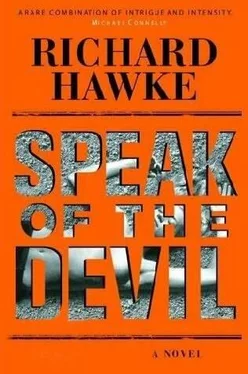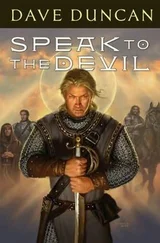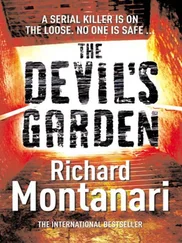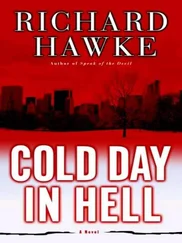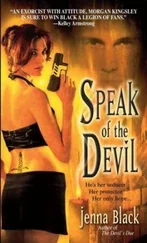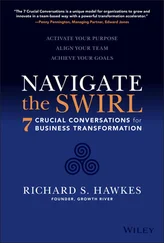“Rock’s dead.”
“Gay, too. How many times is one man going to break your mother’s heart?” She raised a warning finger. “Don’t answer that.”
“You’re looking good,” I said, lifting her bag from her shoulder and slinging it over mine. “California must agree with you.”
“It does. The people are as batty as they come, but they seem to be enjoying themselves. Half the girls are made of silicone, but they seem to be enjoying themselves, too. Tell you the truth, I couldn’t live there.” She flashed me a smile. “But I enjoyed myself.” She gave me the once-over. “Say, you’re looking nice and formal. This must be what it’d be like to have a lawyer for a son.”
“They’re burying Tommy this afternoon,” I said.
She caught her breath. “Ah, Jesus. Tommy Carroll. Between your father and Tommy, that job’s not holding such a good track record, is it? At least Tommy gets a full-fledged funeral. At least that.”
“Let’s get your suitcase.”
We waited a few rounds at the carousel before her bag finally showed. The soldier with the crutches was standing nearby, his wife and his daughter hanging all over him. Shirley indicated him as I stepped forward to fetch her bag. “We were seated together. He told me I was pretty.”
“Did you ask him, or did he just volunteer it?”
“What do you mean, did I ask him? Christ, you’re a rotten son. He said I have nice eyes.”
“You do. He’s right. There’s no green greener than the emerald green.”
She made a soft clucking sound. “I could use a drink.”
“Let’s get into the city. I thought maybe you’d want to go to Tommy’s funeral.”
I wasn’t just humoring her. About the eyes, I mean. They were still plenty sharp, plenty arresting. The old man used to wax like Yeats about Shirley Malone’s eyes. And his blood wasn’t even Irish.
“I see you let the place fall to hell without me.”
“It’s a tough old town,” I said. “It bounces back.”
She glanced quickly over at the soldier, then back at me. “Yeah, I know the feeling.”
A MASSIVE POLICE SWEEP OF ANYONE WHO HAD EVER EVEN PRONOUNCED the name Angel Ramos had been launched within an hour of his death. Immunities, bargains and outright bribes were all employed. Sometime around three o’clock in the morning, Philip Byron had been located-alive-chained to an overturned washing machine in the basement of an abandoned row house about a mile from the Flea Club. He was dehydrated and suffering from almost no sleep in over seventy-two hours. He was taken immediately to the hospital for treatment. The infection that had set in on his mutilated hand was not as bad as it might have been. He made a brief nonspeaking appearance on television from his hospital bed, giving a wan thumbs-up with his good hand. The doctors expected a full recovery.
Patrick Noon pulled through as well. Tommy Carroll’s bullet had shattered a rib and damaged a lung, but Noon was out of the hospital in a few days. Leonard Cox also survived his wounds. He was absent four feet of his small intestine, and he’d be in the market for a new kneecap, but the prognosis was that he would live to see both his trial and the many, many years of prison time that likely stretched beyond that.
I’d huddled for two days with Remy Sanchez and lawyers from the district attorney’s office and laid out for them all that I knew or presumed I knew concerning Margaret King, Leonard Cox, Roberto Diaz, Angel Ramos, Tommy Carroll and Mayor Martin Leavitt. I was, may I say, the center of attention.
When it became clear that Cox was going to survive his wounds, I suggested a tactic that was debated for several hours and finally agreed upon. I proposed that Cox not be informed of Tommy Carroll’s suicide. He was kept away from radio and television and newspapers and from all personal visitors. His lawyers cried foul and declared that their client was also being kept away from his civil rights. Cox’s doctors announced-per instruction-that the health of their patient required this near-complete isolation and that yes, they would duly testify to that effect in court if requested to do so.
Apparently, the health of their patient did allow him extensive visits from a particular Hispanic police captain. Remy Sanchez informed Cox that Tommy Carroll was not only alive but singing a most fascinating tune. Perhaps, Sanchez suggested, Cox would like to gargle some salt water and weigh in with a tune of his own.
“He thought he was singing a duet,” Sanchez informed me over drinks at McHale’s after a long session at Cox’s hospital bedside. “But it was pure solo.”
According to Sanchez, it was a strong performance. Cox set his sights on Police Commissioner Tommy Carroll. He was under the impression that by handing over Carroll, he was to receive substantial leniency in his own case. “Gosh, I don’t know where he got that impression,” Sanchez said. “He might claim it came from me, but I guess a guy in his position-all that medication and pain and everything-sometimes they just hear things.”
Cox explained that it was Angel Ramos who had murdered Officer Thomas Cash out at the Brooklyn junkyard. Cash had arranged to meet with Ramos and had been wired to record their conversation in hopes of gathering information on his own partner, Jay Pearson, who was in thick with Angel. Or so said Cox. What Cash hadn’t known was that word had leaked to Pearson about Cash becoming a stoolie, so Pearson had directed Ramos to take the officer out. Ramos did. Somehow he managed to wrest Cash’s own service revolver from him and fired twice into the man’s heart. Pearson then appeared on the scene. Cox’s guess was that Pearson was planning to kill Ramos, thus mopping up two potential problems at once. But Ramos caught the drift and shot Jay Pearson point-blank in the forehead. Angel fled. Cox and McNally answered the 911 call about shots being fired in the junkyard, and while Cox was attempting CPR on Cash, he discovered the wire. He removed the wire and the recorder while McNally was off radioing for assistance.
“Cox had the whole damn thing on tape,” Sanchez told me. “I.A. was taking gas. They knew Cash was wearing the wire, and they knew it was missing when Cash’s body got to the hospital. Because Ramos had used a service revolver on both men, Cox convinced McNally that they should rig the scene to look like a murder-suicide. No one really bought it. Cox swapped Pearson’s and Cash’s guns around, since Cash’s gun was the one that had been fired. He put the gun in Pearson’s hand and fired it into the ground, to get prints and residue. That was picked up on right away-the gun switch. The whole scene just didn’t quite fit right. It was a hack job. They let the story go out there anyway. They decided two ‘bad’ cops taking their own justice was better than a double cop killer on the loose.
“Carroll knew Cox. Cox’s old man had been with homicide out in Brooklyn, and Carroll had tracked the son’s career, especially once it became clear that the son was going sour. Cox says that Carroll contacted him about a month ago. He said he wanted him to recruit a lowlife to take a shot at someone during the Thanksgiving parade. Just to shake things up, Cox says. Just to get the city on edge. He said he had fifty thousand dollars to play with.
“Cox knew immediately who his man was. He had the tape recording of Angel Ramos taking out not one but two New York City cops. Between the squeeze and the money, Ramos was an easy recruit. Cox told Carroll about Angel Ramos and added that Ramos had picked up some rudimentary bomb-making skills at Incarceration U. That’s what got Carroll thinking on a larger scale. Ramos brought in Diaz to do the parade hit. The idea was that Cox and McNally would nab Diaz and whisk him away in the patrol car, presumably to let him escape later. That was crap, of course. It was just the way to let Diaz think he was safe. Diaz was an idiot. They were going to kill Diaz no matter what. According to Cox, though, it was Carroll who shot Diaz at the Municipal Building. Shooting McNally at the parade had not been part of the plan, and Carroll was furious. He personally took Diaz out for it. Then Ramos left the bomb at Barrymore’s that night. It was supposed to be a small bomb, just a little flame-up, it wasn’t necessarily supposed to kill anyone. Then Ramos did that nun act you told me about when he dropped off the next note. Sometime after he left the note at the convent in Riverdale, he went free agent. He nabbed Byron and decided to take over the game. From that point on, according to Cox, Carroll’s orders were to find Ramos and kill him on the spot.”
Читать дальше
